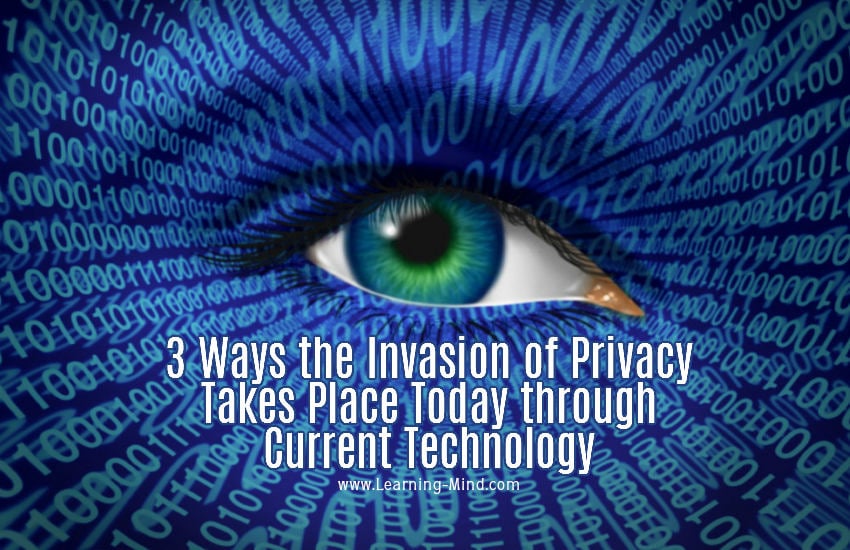
Imagine there were people watching and listening to you every moment of every day. From when you woke up in the morning, during your commute to work, the hours from 9 to 5 and even during the night as you enjoy a few drinks with friends. Such a total invasion of privacy sounds paranoid, right? Well, maybe not.
First of all, consider that the smartphone in your pocket is equipped with a GPS tracker, camera and a microphone. Also, given the current unstable security climate of the internet, it’s at least partly feasible that someone could hack into your device. As a result, they could use it to not only track your whereabouts but also peer into the immediate environment around you.
Luckily, this type of Orwellian situation isn’t the everyday norm. But it does speak volumes about the extent to which the invasion of privacy is taking place thanks, in large part, to the current technologies of our time.
Using 1984, the seminal work of George Orwell, as a standard, how exactly does the technology of our current era compare to the mass surveillance of the nightmarish dystopia imagined in the novel?
In the book, the government watches its citizens using “telescreens” which are installed in every apartment. People are also encouraged through fear and oppression to report any suspected wrongdoing to party officials.
Thankfully, this isn’t the case in most societies today, but it’s interesting to note that surveillance devices are abundant in a large number of households. Two key differences worth noting are that the surveillance tools in the book are forced upon ordinary people by the government.
Today, the devices that restrict privacy don’t report back to governments but to corporations, and they are installed in homes willingly and without legislation.
A good example of willingness to invite corporations into our homes is the rollout of the Amazon Echo and the Google Home. These devices, while built for an innocuous and utilitarian purpose of being a home assistant, are ears which can record, store and report sound heard in its environment. This includes conversations.
What would be the purpose of such surveillance? Well, since companies such as Amazon and Google make a large part of their revenue from advertising, it stands to reason that data gathered in this way (and in many other legitimate ways) could be used to produce tailored advertising to their users based on their behavioral preferences.
If that sounds a little too farfetched, consider this: a recent bug in a particular Google Home Mini caused the device to record audio in its environment continuously without their owners’ consent.
If it’s not audio, there is also video and other optics to consider – after all, every laptop and mobile device is fitted with a camera.
A scenario in which this could be used to ill effect was played out to egregious proportions in the recent episode of dystopian sci-fi series Black Mirror, in which a teenager is blackmailed with illegally-obtained video footage to carry out a series of crimes. It blows the lid on our technological anxieties about being hacked, and the seeming inevitability of it.
Closer to reality, facial recognition apps mean that your identity can be matched with online social media networks and determined without willingness or consent. From there, it’s a small leap to imagine having all of your details and data on display whenever a camera catches a glimpse of your face when you are out in public.
With the ever-increasing profusion of technology, the future of privacy is looking uncertain at best. The internet has thrown a broad net of connection over the entire planet, but as people grow closer, our privacy recedes.
The most telling evidence of this was perhaps the global surveillance scandal uncovered by Edward Snowden in 2013. A traitor to some and martyr to others, Snowden showed the extent to which technology can be abused and used to track everyday citizens. He emphasized how it can be done under the guise of seemingly well-intended means such as heightened national security and liberty.
This paradox – ensuring that a country’s population remains free and safe by means of increased surveillance and invasion of privacy – leaves a slew of questions in its wake. And as the world’s appetite and obsession for technology grow at a startling rate, this begs the question: will privacy hold a place in our future?